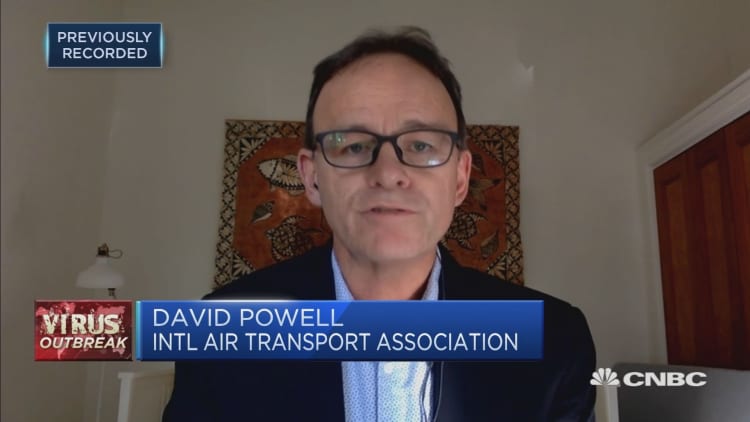Researchers from MIT say that washing your hands at the airport could help curb a pandemic by up to 69% — and that includes flu-like illnesses such as coronavirus.
Coronavirus, which was renamed COVID-19 on Tuesday, is believed to be spread through respiratory droplets that are expelled by coughing and sneezing.
Experts and the Centers for Disease Control and the World Health Organization say that proper hand-washing is the best defense against contracting the virus, which has infected more than 45,000 people and led to at least 1,115 deaths.
Although hand-washing may seem like a basic task, studies suggest that 30% of people don't wash their hands after using the toilet.
In airports, specifically, studies suggest that only about 20% of people have clean hands, Christos Nicolaides, study author and postdoctoral fellow at the MIT Sloan School of Management said in a release.
Studies suggest that 30% of people don’t wash their hands after using the toilet
That's a big problem, because airports and airplanes are notoriously germy given the high traffic and turnover. (Coronavirus "super spreader" businessman Steve Walsh likely contracted the virus at a conference in Singapore, then flew to France and traveled to Geneva, Switzerland, and finally flew England's Gatwick Airport, for example.)
Other research has shown that self‐service check‐in screens, gate bench armrests, water fountain buttons, door handles at airports, seats, tray tables and handles of lavatories in aircraft, tend to be bacteria hotspots. So, it's extra important to wash your hands after touching these areas.
For this study, researchers used epidemiological modeling to simulate how hand-washing could impact the "diffusion of infections worldwide." They calculated that if 60% of travelers had clean hands, it has the potential to slow a global disease by 69%. But even if just 30% of travelers kept their hands clean, it could reduce the impact of a disease by 24%.
Researchers also determined the airports that theoretically could have the most impact in spreading a virus, because they provide direct connections to "mega-hub airports," offer in- and out-bound international flights and are located at "geographically conjunctive points."
With those metrics, the airports that they deemed would have the "greatest impact" are London's Heathrow, Los Angeles International Airport, John F. Kennedy International Airport in New York, Sydney Airport and Paris-Charles De Gaulle Airport.
Of course, these findings are limited because they're based on theoretical models. The U.S. Department of Health and Human Services told Americans on Jan. 31 not to travel to China, where the coronanvirus outbreak began, and several major airlines have suspended flights to mainland China.
But washing your hands is the "primary thing" that people can do to minimize exposure to COVID-19, David Powell, medical advisor at the International Air Transport Association told CNBC Wednesday. Although many people are wearing surgical facemasks for protection, the CDC doesn't recommend it for people who are well.
And there is a "right way" to wash your hands. The CDC recommends washing your hands with soap and water for at least 20 seconds (or the time it takes you to sing "Happy Birthday" twice), and then rinse your hands and dry them using a clean towel. In instances when you can't wash your hands, using a 60% alcohol-based hand sanitizer will get rid of some germs, but not all.
It's important to wash your hands before, during and after food prep or eating, and after using the toilet, changing a diaper, blowing your nose, coughing or sneezing. If you're caring for someone who is sick with diarrhea or vomiting, treating a cut or wound, touching an animal or handling garbage, the CDC also advises washing your hands.
Like this story? Subscribe to CNBC Make It on YouTube!
Don't miss:
- A coronavirus 'super spreader' was identified—what that means and what you need to know
- Cruises quarantined, flights stopped: Why risk of Americans getting coronavirus at airports, cruises, theme parks is still low
- World's best airport has new $1 billion shopping, entertainment hub with indoor waterfall—look inside



